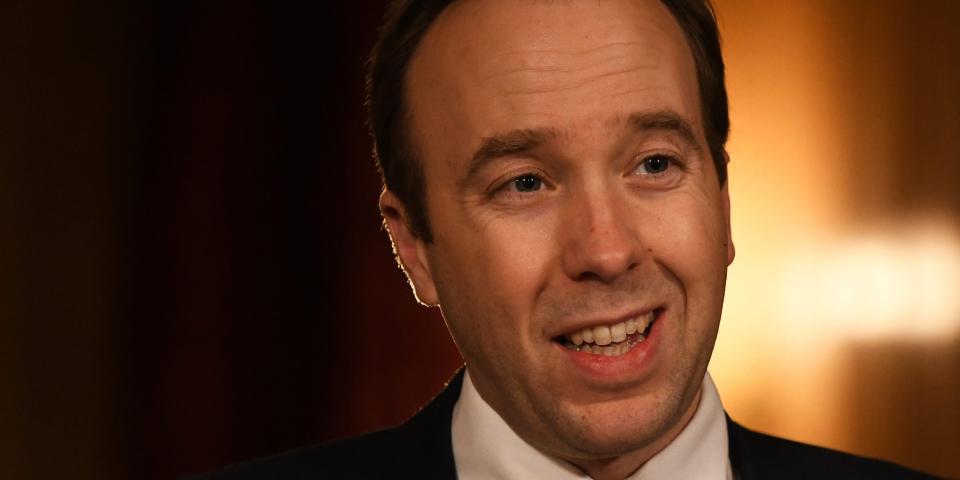All the bad news Boris Johnson's government just tried to bury

The UK government released a trove of bad news as MPs head on their summer break.
Ministers announced pay freezes and dodged questions on transparency.
Labour said the government had "clearly attempted to hide" a damning report.
The UK government has a cynical tradition of saving up bad news and dumping it into the public domain just as MPs head off for their summer break.
The seemingly deliberate strategy allows ministers to escape scrutiny by releasing embarrassing reports and policy changes all at once as parliament goes into recess.
As MPs broke for summer on Friday, parliament saw the usual flood of bad news, which arrived in the form of multiple written ministerial statements and delayed reports.
Here are some of the announcements Boris Johnson's government may not have wanted you to see.
1. Teachers and police get 'slap-in-the-face' pay freeze

Home Secretary Priti Patel announced on Thursday that teachers and police officers earning more than £24,000 would have their pay frozen in the 2021/2022 financial year. Those earning less would receive a minimum increase of £250.
Teachers' unions reacted furiously to the decision, saying it would amount to a real-terms pay cut of up to 4% once inflation was taken into account.
Paul Whiteman, general secretary of the National Association of Head Teachers, said, per the Guardian: "This pay cut risks further eroding leadership supply, and risks prompting an exodus of leaders when the pandemic finally lifts. A slap in the face doesn't begin to describe it."
The Police Federation of England and Wales said it no longer had confidence in Priti Patel as Home Secretary, calling the pay freeze an "insult," The Independent reported.
Chancellor Rishi Sunak had trailed the news last year, warning that only NHS staff would receive a pay rise in the public sector.
2. Home Office showed "massive failure of leadership" over asylum-seeker camps
A report released on Thursday heavily criticized the Home Office for its treatment of asylum seekers living at two former military bases - Napier Barracks in Kent and Penally Camp in Pembrokeshire.
The report by the independent chief inspector of borders and immigration accused the department of "failures of leadership" and said that Home Office staff rarely attended either camp.
The report said "inadequate action" had been taken to address fire risks after a large fire broke out at Napier Barracks.
It also said that an outbreak of COVID-19 at Napier Barracks in February was "virtually inevitable" due to the "cramped conditions" there. Nearly 200 people contracted COVID-19 during the outbreak.
The report was prepared in March but wasn't released until this week. Yvette Cooper, the chair of the Home Affairs Select Committee, said: "Ministers have clearly attempted to hide it by releasing it on the last day of the parliamentary session."
3. Dodging questions on ministers' use of private emails

The government avoiding releasing information on Thursday on how many times health ministers used private email addresses to refer PPE and test & trace deals. Officials claimed the information was "not available."
It comes after Matt Hancock, the former health secretary, was reported to have used a private email address to conduct government business. Lord Bethell, a junior health minister, also used a private email address, according to a senior civil servant.
Angela Rayner MP, the Labour Party deputy leader, asked the health department on July 1 for this information, but a health minister did not respond until the final day of the Parliamentary term.
One week earlier, government lawyers wrote to the Good Law Project, a campaigning group, saying they would not be searching the private email accounts used by former health secretary Matt Hancock and three other government ministers.
Rayner says the government's response to her question shows "why we need an independent investigation now". On July 6, the Information Commissioner's Office announced that it would investigating the use of private email addresses at the health department.
4. "Whitewash" claim over Greensill scandal

An official investigation into the Greensill lobbying affair found no breach of the rules by former prime minister David Cameron - a decision Angela Rayner called "a whitewash."
The Boardman Review, which was originally meant to be reported to the Prime Minister "no later than the end of June" was published on Thursday.
The review was led by Nigel Boardman, a non-executive director at the Department for Business, Energy and Industrial Strategy. Boardman once stood for the Conservative Party as a candidate in council elections, the Guardian disclosed.
The review heavily criticised the deceased Jeremy Heywood, the former cabinet secretary, for enabling the access Lex Greensill had to Whitehall and Downing Street.
His widow, Lady Suzanne Heywood, told the BBC that Boardman's review "scapegoated" Heywood.
Boardman said that "the current system and those working within it worked well", but is due to submit recommendations on possible improvements at a later date.
Separately, MPs criticised government minister Michael Gove for his "patently illogical" decision to stop Sue Gray, a senior civil servant, from giving evidence to a Parliamentary committee on Greensill.
In an interim report, the Public Administration and Constitutional Affairs Committee said Gove's "intervention to [...] prevent her from answering these will surely add to the suspicions surrounding this episode."
Read the original article on Business Insider

 Yahoo News
Yahoo News 